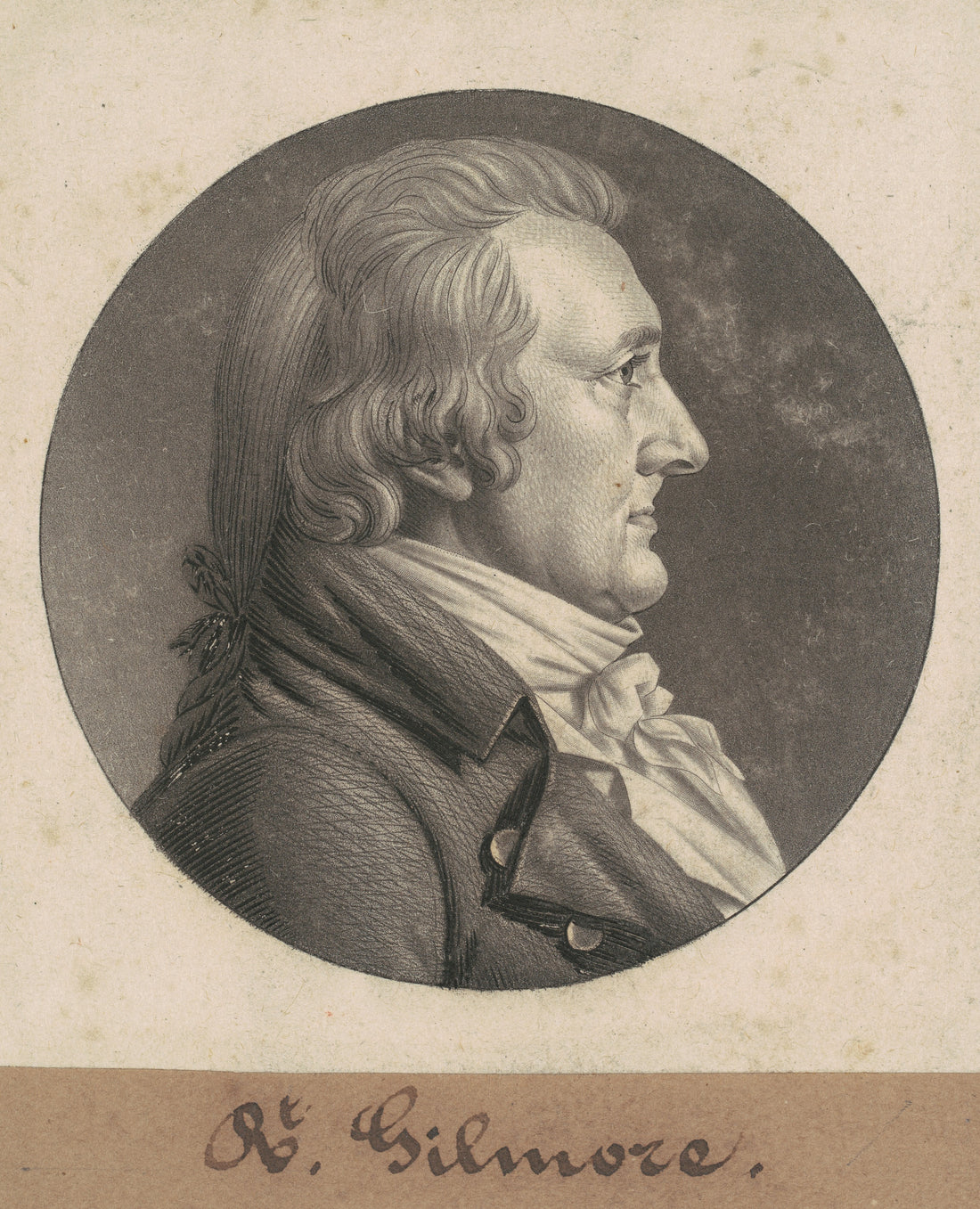
Robert Gilmor I, Financier, American Revolution, Baltimore
Robert Gilmor I 1748-1822
Revolutionary War financier, Merchant; founder of house of R. Gilmor & Son, East India importers; President Chamber of Commerce; first President Baltimore St. Andrews Society
https://archives.lib.umd.edu/repositories/2/resources/1086
The Robert Gilmor and William Trippe papers bring together the men and places of Dorchester County, a heart-shaped area of the Eastern Shore of Maryland, and provides a window on their lives for a seven month period from November 1776 to May 1777. The collection focuses on Captain William Trippe's (1725-1777) schooner "Hazzard" and trips made for Robert Gilmor and Co. for supplies during the Revolutionary War. It includes business accounts for goods…
Robert Gilmor role in financing US debt and District of Columbia, letter to George Washington 1796
https://founders.archives.gov/documents/Washington/05-21-02-0059
https://www.hmdb.org/m.asp?m=201508
Scottish-born Robert Gilmor (1748-1822) brought his young family to Baltimore from the Eastern Shore at the outset of the Revolutionary War. Profiting from wartime shipping and industry, Gilmor emerged in the 1790s as one of Baltimore's leading merchant princes.
https://emuseum.history.org/objects/35640/portrait-of-robert-gilmor-sr-17481822?ctx=b4dc22629aac73e2f88f4453cb40ef0f41bab9a3&idx=21
https://www.electricscotland.com/history/america/scotinamerica_preface.htm
Robert Gilmor, the founder of the family in this country, was born at Paisley on the 10th of November, 1748, and christened the same day by the Rev. Dr. John Witherspoon, afterward of Princeton College. John Gilmor, the father of Robert, was a wealthy manufacturer. At the early age of seventeen his son displayed so great an aptitude for business that his father took him into partnership. Within a year, however, from this time, Robert, who had previously made several successful business trips to London, now determined to further extend his commercial enterprises, and with an assortment of goods suitable for the American market, he embarked in 1767 for this country, and landed at Oxford, Maryland, toward the end of September. This little place was then much resorted to by the British vessels to obtain the products of the country. The young man realized 1,500 from his venture, and being pleased with the country, determined to settle there. While on a visit to Dorchester County he made the acquaintance of his future wife, Miss Louisa Airey, daughter of the Rev. Thomas Airey, with whose brother he formed a partnership before he had been in the country one year. On the 25th of September, 1771, he married, and after being engaged in business on the Eastern Shore of Maryland for over ten years, he removed to Baltimore, believing it offered a wider field for his business. Mr. Gilmor soon developed a character of great prudence and industry, and showed a decided talent for making money.
Among Mr. Gilmor's business correspondents at this date were Messrs. Thomas Willing and Robert Morris of Philadelphia, both of whom were members of the Continental Congress, and the latter one of the Signers of the Declaration of Independence. They traded under the firm of Willing & Morris. These gentlemen, together with Mr. William Bingham, Mr. Willing’s son—in—law, anticipating a treaty of peace after the surrender of Cornwallis, were desirous of forming an establishment at Amsterdam for the purpose of exporting more largely the staple products of Maryland and Virginia, and deeming Mr. Gilmor a suitable person to represent the concern in Holland, they offered him a copartnership, which was accepted. In accordance with this arrangement, Mr. Gilmor sailed with his family on the 27th of November, 1782, and arrived safely on the 12th of January, 1783, at his destination, where they met Captain Joshua Barney, on his way to America with the preliminary treaty of peace between Great Britain, France, and the United States.
At Paris Mr. Gilmor met John Adams, one of the negotiators of the treaty of peace, who gave him a letter addressed to Messrs. Wilhelm & Jan Willink, the bankers of the United States in Holland, and one of the richest houses in Europe. This was the beginning of a commercial connection between the Gilmors and the Willinks which continued from father to son for upward of fifty years, during which transactions took place to the amount of many millions of dollars.
The house in Amsterdam, under the management of Mr. Gilmor, soon commanded an extensive business, extending all over Europe, and to the West Indies and the United States. Eventually the firm thus constituted was broken up by the death of Mr. Samuel Inglis, one of the Philadelphia partners. Mr. Bingham, who was at that time living in London, wrote to Mr. Gilmor to come there, with a view of arranging a partnership with him. He did so, and the result was the establishment of the firm of Robert Gilmor & Co. of Baltimore, in which Mr. Bingham was the other member. By his successful enterprises to all parts of the world, Mr. Gilmor, in the course of fifteen years, became one of the merchant princes of Baltimore.
In 1799 the business connection with Mr. Bingham was dissolved. and Mr. Gilmor associated his two sons, Robert and William, with him, under the firm name of Robert Gilmor & Sons. The correspondents of the old firm were continued to the new, and many years of commercial prosperity followed. Robert Gilmor, Jr., did most of the traveling for the firm, and was thus enabled to combine pleasure with profit. He continued to take the deepest interest in the prosperity of Baltimore to the last, and died in 1849, universally lamented.
Aditional reading
https://www.jstor.org/stable/20087070
https://www.jstor.org/stable/20087055
https://standrewsbaltimore.com/st-andrews-society-history/
https://en.wikipedia.org/wiki/Robert_Gilmor_Jr. 1774-1848